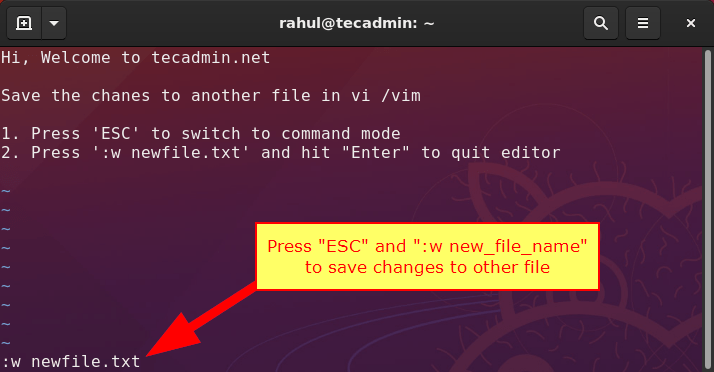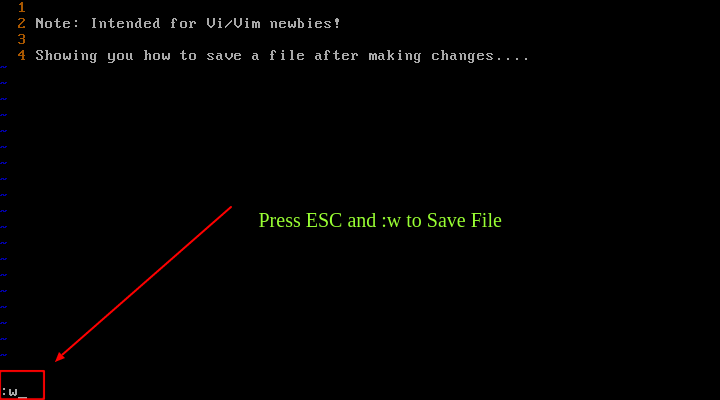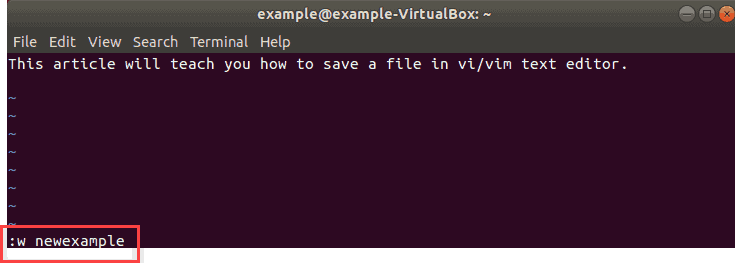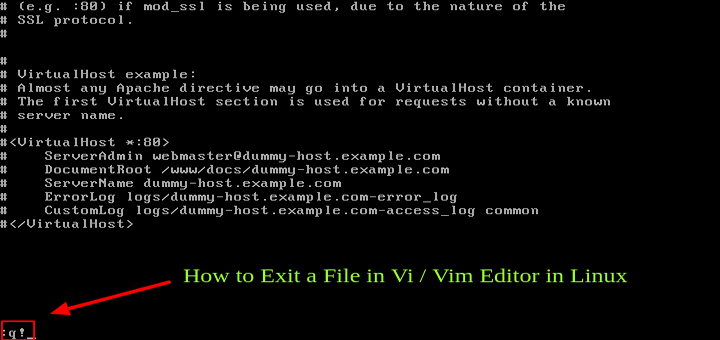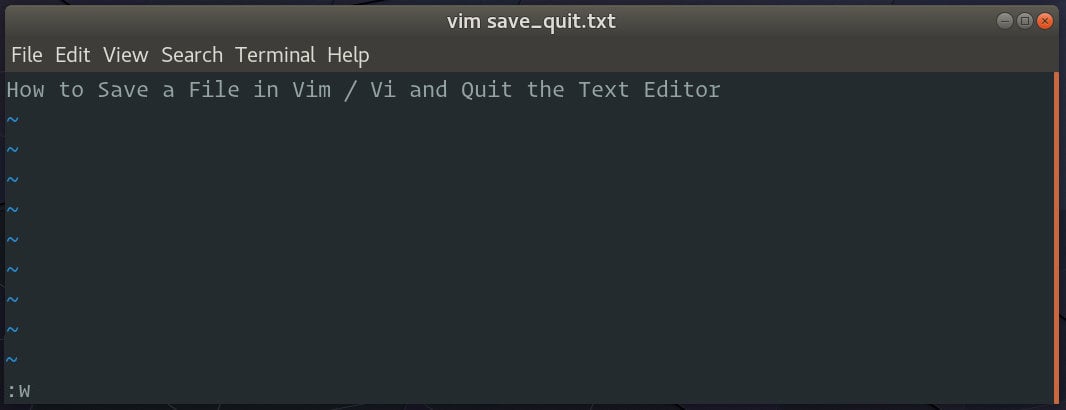Okay, buckle up buttercups, because we're about to embark on a thrilling adventure: conquering the beast that is saving in Vim! Fear not, for it's not nearly as scary as that time you accidentally called your boss "Mom" during a Zoom meeting.
The Basic Save: A Tiny Superhero
First things first, let's learn the bread and butter, the dynamic duo, the "PB&J" of saving: :w. Seriously, just type a colon (:), then a "w," and finally, smash that Enter key like you're squashing a digital bug.
Poof! Saved! Think of it as whispering sweet nothings of data permanence to your precious file.
Save As: Giving Your File a New Identity
Need to save your masterpiece with a new name, perhaps to confuse future generations of programmers? No problem!
Use :w new_file_name.txt (or whatever extension suits your fancy). Boom! You've cloned your file like some digital science experiment gone wonderfully right!
Saving and Quitting: The One-Two Punch
Feeling efficient? Want to save your work and make a dramatic exit all in one fell swoop? You're my kind of programmer!
Behold! :wq is your new best friend. It's like saying "Hasta la vista, baby!" to your editing session, but in a much more polite and programmatically sound way.
Forceful Saving: When Vim Just Won't Listen (Drama!)
Sometimes, Vim can be a bit stubborn. Maybe it thinks you don't really want to save. Maybe it's just having a bad day.
Enter the mighty force save! Use :w!. That exclamation point is key – it tells Vim, "I mean business! Save this, or else!"
Saving Everything: The Grand Finale
Imagine you've got a whole bunch of Vim windows open, each containing its own precious file. Do you really want to go through each one individually and save it?
Of course not! You're too important for that. Instead, use :wa to save them all with single line command. Easy peasy!
Saving Only When Changes Exist
Sometimes we only want to save the file if it has any changes, don't we? Well, Vim got you covered!
Use :up and see the magic happen! It's like a smart save, only saving file if it detects any changes.
A Word of Caution (Because Adulting)
Remember, saving often is like flossing your teeth: you might not feel like doing it all the time, but you'll be grateful you did later.
Imagine losing hours of work because of a power outage or a rogue squirrel chewing through your Ethernet cable. The horror! Avoid this with frequent saving.
Pro Tip: Autocommands to the Rescue
If you are someone who likes to overdo things, consider setting up autocommands in your .vimrc file. These automatically run commands based on the action.
For example, to auto save after every 5 seconds, you can add :set autowriteall, or :set autowrite to your .vimrc file to save upon any changes.
Now go forth, save your files, and conquer the digital world! And remember, Vim is your friend...most of the time.
"Saving in Vim: It's not rocket science, but it is infinitely more rewarding than folding laundry."
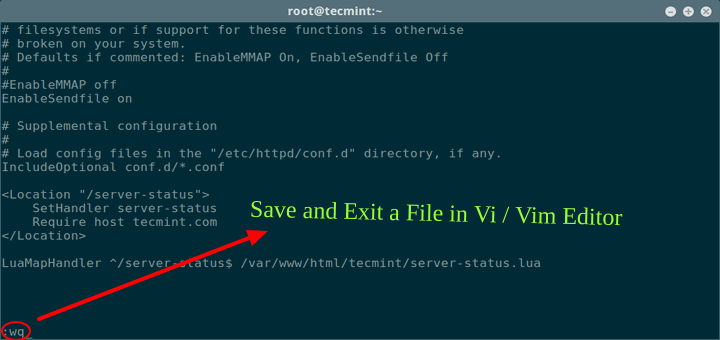



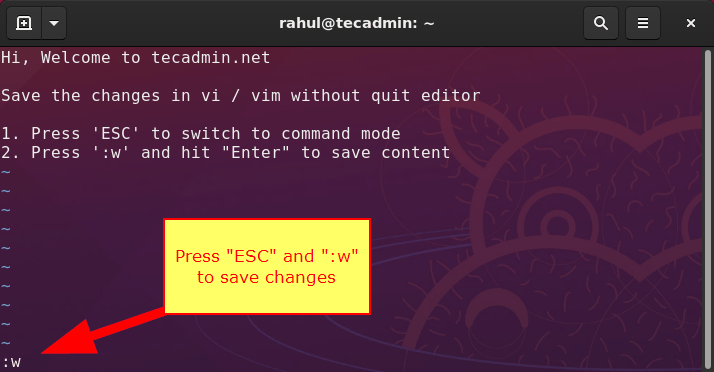
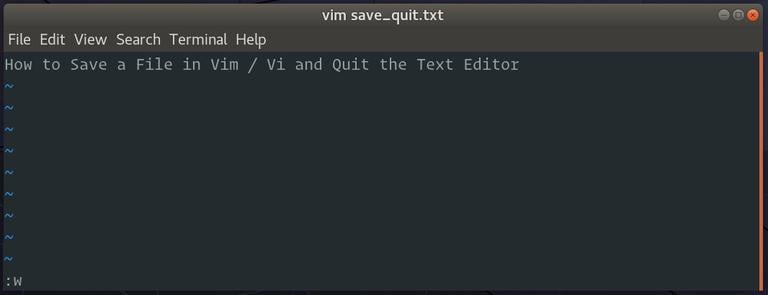
![How to Save and Exit in VIM Editor? [Save VIM/ Exit VIM] - How To Save In Vim Editor](https://monovm.com/wp-content/uploads/2021/07/cover493-847xAuto.png)


![How to Vim Save/Vim Exit/Quit in Editor? [VIM Save and Exit] - How To Save In Vim Editor](https://monovm.com/uploads/tinymce/Suno/2021/07/20/60f6de2b7bc69-save-vim.webp)


